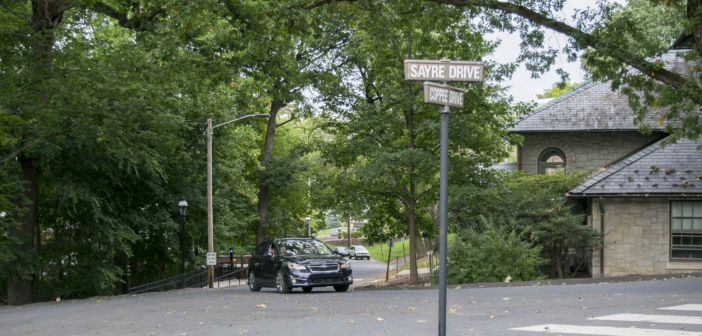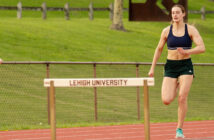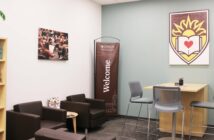Lehigh’s Office of Sustainability collaborated with a number of offices to celebrate “Car Free Day” on Sept. 22. Students and faculty were encouraged to use alternative methods of transportation.
“There has been a decrease in the number of vehicles (on campus),” wrote Brett Johnson, an assistant manager at Transportation and Parking Services, in an email. “Lehigh offers car and bike sharing, as well as bus services to get you to and from your residence halls, offices, libraries and academic buildings.”
According to the Office of Sustainability’s website, “Car Free Day” is a worldwide event that encourages alternative methods of transportation, like walking or biking, to reduce carbon footprints.
“Lehigh strives to create a sustainable campus that merges environmentally responsible solutions (such as going car-free) with equitable community practices (such as carpooling with your colleagues) and economic prosperity (saving money),” the website reads.
In a 2014 Office of Sustainability survey sent to Lehigh faculty and staff, 90 percent of respondents said they use single-occupancy vehicles to get to campus. Students also use cars to travel on campus.
As of the start of this semester, Student Senate sent a survey to Lehigh’s student body polling top issues on campus. About 13 percent of the population responded to the survey. The results found 65.4 percent of students said “cost of parking” was the highest-ranking issue on campus.
“While I think there are bigger issues on campus, I think this is easily one of the most recognized,” Senate president Matt Rothberg, ’18, said.
Gordon Gorab, ’20, a Senate club committee chair and former transportation committee member, said despite the fact that fewer than 65.4 percent of Lehigh Students have cars on campus, the cost of parking is still at the forefront of students’ concerns.
“Even people (who) don’t park see an issue with parking,” Gorab said.
On-campus parking permits for those who live in dormitories, sororities or fraternities cost $414, according to the Parking at Lehigh webpage. Those who live off-campus and want a pass can pay $83 to access parking in Mountaintop lots or faculty/staff areas on Asa Packer Campus on weekdays from 4 p.m. to 6 a.m. and all day on Saturdays and Sundays.
Students can also access the Zoellner Arts Center parking garage for $233 a semester or $466 for a full year.
“The cost for parking actually pays for the busing,” Rothberg said. “This is interesting because you might have the people that don’t actually take the buses, yet they’re still paying for it. A lot of the other costs goes toward paying for snow removal and pavement renovation.”
Senate’s transportation committee was absorbed by the new facilities and services committee. This committee will be focusing on parking and transportation issues on campus, as well as issues related to housing, dining and LTS.
Charlie Williams, ’20, the chair of Senate’s facilities and services committee, said he is going into the semester with students’ concerns, like the high cost of parking, in mind.
“If we can’t lower that cost, we would like to get the administration to be more transparent about where the money’s going,” Williams said. “So even if the burden can’t actually be lowered, it would be more obvious why it’s a burden.”
Rothberg also said one of Senate’s goals is to communicate with Parking Services and discuss the possibility of redirecting funding from busing and other costs.
Senate would also like to explore the relationship between parking costs and financial aid.
Last year, Gorab met with Parking Services about students who receive full financial aid and have cars on campus. He said he wanted to know whether or not students with financial aid could also receive aid to cover their parking expenses.
“What Parking Services had to say is that the only people (who) would receive assistance in covering their parking are people that are awarded by the school and outside sources, the full amount of tuition, plus the cost of parking,” Gorab said. “So only if you have a surplus of financial aid can you receive assistance in parking.”






Comment policy
Comments posted to The Brown and White website are reviewed by a moderator before being approved. Incendiary speech or harassing language, including comments targeted at individuals, may be deemed unacceptable and not published. Spam and other soliciting will also be declined.
The Brown and White also reserves the right to not publish entirely anonymous comments.